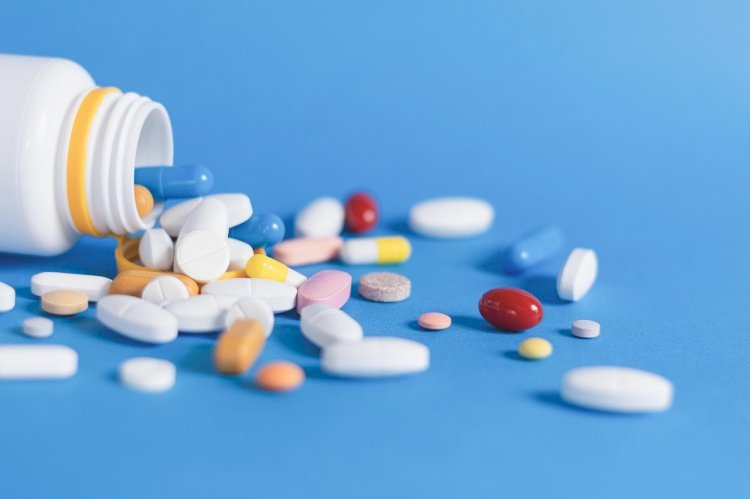Beyond Distraction: Understanding the Emotional Rollercoaster of ADHD

When most people hear the term ADHD, they think of hyperactivity, restlessness, or lack of focus. But beneath the surface lies a more turbulent experience—an emotional rollercoaster that affects mood, self-esteem, and relationships. For many individuals with ADHD, it’s not just about distraction—it’s about living with emotional intensity that others often can’t see or understand.
Looking Deeper: The Emotional Side of ADHD
More Than Just Attention
Attention-Deficit/Hyperactivity Disorder (ADHD) is often framed as a behavioral or academic issue. However, ADHD also profoundly affects emotional regulation. People with ADHD don’t just have trouble paying attention—they have trouble managing emotional responses, especially when they feel overwhelmed, criticized, or misunderstood.
This emotional dysregulation is not a separate condition—it’s part of the core Symptoms of ADHD, especially in adults. Yet it remains one of the least talked-about aspects of the disorder.
Emotional Symptoms of ADHD
-
Intense mood swings
-
Difficulty calming down after getting upset
-
Low frustration tolerance
-
Overreaction to minor stressors
-
Rejection sensitivity (feeling extreme hurt from real or perceived criticism)
-
Chronic feelings of shame, guilt, or failure
These symptoms can be exhausting—not just for the person living with ADHD, but also for the people around them.
The Science Behind the Storm
Why Emotions Hit Harder with ADHD
Neurologically, ADHD affects the prefrontal cortex, the part of the brain responsible for attention, impulse control, and emotional regulation. This area is also involved in executive functioning, which includes planning, memory, and self-regulation.
Because the ADHD brain has difficulty slowing down emotional reactions, small triggers can lead to big emotional outbursts, followed by just as intense regret or embarrassment. It’s not a matter of willpower—it's how the brain is wired.
Rejection Sensitive Dysphoria (RSD)
One of the most painful emotional aspects of ADHD is a phenomenon called Rejection Sensitive Dysphoria (RSD). People with RSD experience extreme emotional pain in response to criticism, failure, or the perception of being rejected—even when no harm was intended.
For someone with ADHD, RSD can cause:
-
Sudden withdrawal from relationships
-
Avoidance of new opportunities
-
Anxiety or panic in social situations
-
Anger or sadness that feels uncontrollable
This emotional reactivity is real, raw, and often misunderstood.
The Hidden Toll on Daily Life
Relationships on Edge
People with ADHD may struggle to maintain relationships due to unpredictable moods, impulsive speech, or forgetting important dates. These behaviors are not intentional—but loved ones may not always understand.
Without proper support or communication, relationship burnout can occur on both sides. Guilt, shame, and fear of abandonment often linger in the mind of someone with ADHD.
Impact on Self-Esteem
After years of being labeled as “too sensitive,” “too emotional,” or “too much,” individuals with ADHD often internalize those labels. This can lead to a damaged sense of self, where they feel flawed or broken.
The emotional ups and downs, combined with missed opportunities and social misunderstandings, can create a cycle of self-doubt that is hard to break.
Finding Stability: ADHD Treatment for Emotional Health
The Role of Medication
ADHD medication is often the first line of treatment, and while its main goal is to improve attention and impulse control, many people also report emotional benefits.
Stimulant medications (like Adderall or Vyvanse) help regulate dopamine, which plays a role in mood and reward processing. Non-stimulant medications like atomoxetine or guanfacine may also be used, especially if emotional sensitivity is a major concern.
Though medication alone may not fully stabilize mood swings, it can provide the clarity needed to engage in therapy and build emotional resilience.
Therapy and Emotional Coaching
Cognitive Behavioral Therapy (CBT), especially when tailored for ADHD, helps individuals:
-
Recognize emotional patterns
-
Learn techniques for emotional regulation
-
Address negative self-talk
-
Build self-compassion
Therapists and ADHD coaches can teach grounding techniques, stress management, and mindfulness practices that help slow down emotional overreactions.
Lifestyle Strategies That Help
Alongside medication and therapy, certain habits can improve emotional balance:
-
Regular exercise to stabilize mood and release built-up tension
-
Sleep hygiene to reduce irritability and impulsivity
-
Scheduled breaks during stressful tasks
-
Journaling or voice-notes to process overwhelming emotions
-
Creating a calm, predictable environment
Small changes like these can create a big emotional buffer throughout the day.
Breaking the Stigma
It’s Not “Just in Your Head”
For too long, emotional struggles tied to ADHD have been dismissed or minimized. People with ADHD are often told to “toughen up” or “stop overreacting”—ignoring the neurological basis of their experience.
But emotions are not a weakness. In fact, many people with ADHD possess deep empathy, strong intuition, and intense passion—all emotional gifts that, when understood and nurtured, can lead to personal and creative fulfillment.
Embracing the Full Picture
It’s time to shift the narrative. ADHD is not just about distraction or restlessness. It’s a complex emotional experience that affects how individuals connect, respond, and live. By acknowledging and addressing the emotional rollercoaster of ADHD, we can build stronger support systems, foster compassion, and empower individuals to thrive—not in spite of their emotions, but through them.
Final Thoughts: Calming the Storm
ADHD is a ride of highs and lows, with creativity, excitement, and intensity on one end—and emotional crashes on the other. But the more we understand the emotional reality of ADHD, the more we can help those who live with it find peace, balance, and clarity.
Through the right mix of ADHD treatment, therapy, lifestyle changes, and community support, the rollercoaster can slow down. And in that steadier rhythm, there’s space for healing, growth, and a more centered life.
What's Your Reaction?















